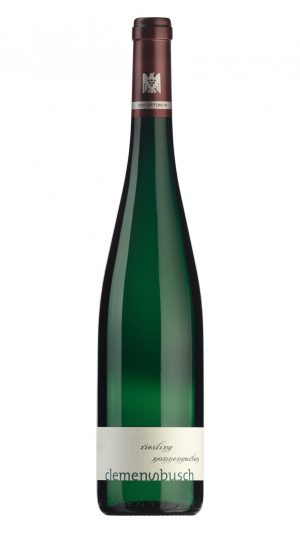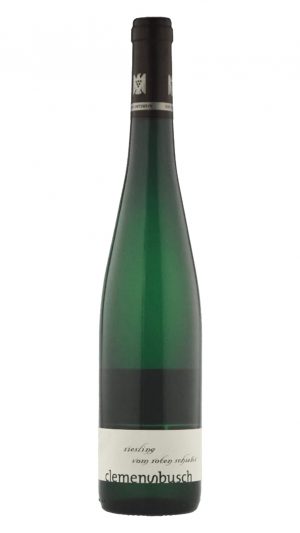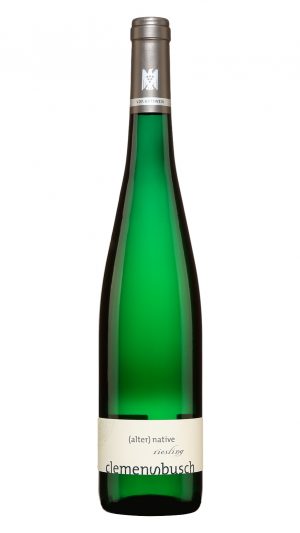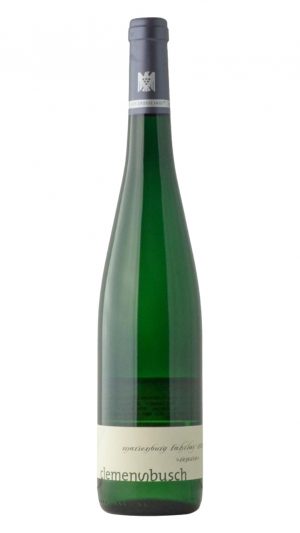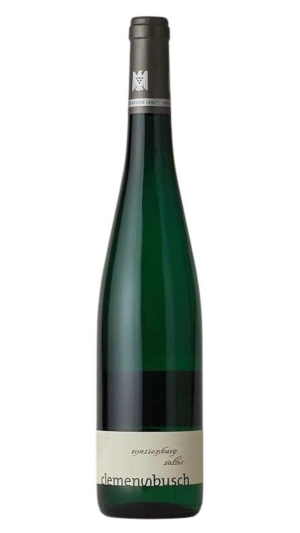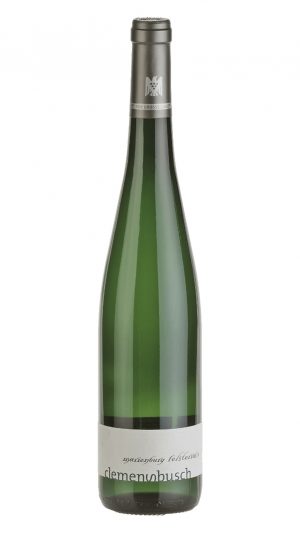Clemens Busch Marienburg Rothenpfad Reserve 2019
Type: White
Country: Germany
Region: Mosel
Grape Variety: 100% Riesling
Viticulture: Biodynamic | Certified Organic
Climate: Northernly continental climate marked by cool temperatures
Terroir: 80 to 85 old vines grown on a soilbed of red slate
Winemaking: The grapes are hand-harvested at optimal ripeness and carefully sorted before undergoing gentle pressing. The wine is fermented with indigenous yeasts in large oak barrels, allowing for a slow and natural fermentation process. Ageing on the lees further enhances the wine’s complexity and texture
Color: Golden yellow
Nose: Intense aromas of ripe stone fruits, such as peach and apricot, along with delicate floral and mineral notes
Palate: Perfect balance between vibrant acidity and a rich, textural mouthfeel. The flavours of citrus, orchard fruits, and slate-driven minerality intertwine, leading to a long and precise finish
About the Winery:
As a young winemaker in the 70s, organic and biodynamic pioneer Clemens Busch was already questioning the use of herbicides and reducing the sulphur levels in his wines. When he and his wife Rita inherited his parents’ winery and vineyards in 1984, they had the chance to put these ideas into practice.
Most of their production comes from the Pündericher Marienburg, a southwest-facing hillside vineyard in the Lower Mosel. They inherited two hectares, but have bought adjoining plots and now own 16 of the 25 hectares which make up the Marienburg einzellage.
Geology along the Mosel is complex, and the winding river provides sites with varied exposures. Clemens still vinifies and bottles each plot separately: he produces Vom Grauen Schiefer (from grey slate) and Vom Roten Schiefer (from red slate). The Rothenpfad plot is all red slate, which is unusual in the Mosel, while Farhlay is dominated by blue slate. Falkenlay, located between the two, and considered by some to be the finest site within Marienburg, is predominantly grey slate and provides grapes for their noble sweet wines.
In the winery, Clemens works with wild yeasts, and ferments mostly in very old 1000-litre barrels. Nothing is added to the wines at any stage, apart from a touch of sulphur at bottling. Charming and self-effacing, Clemens’ winemaking is honest and refined, producing wines that are pure expressions of their terroir.


